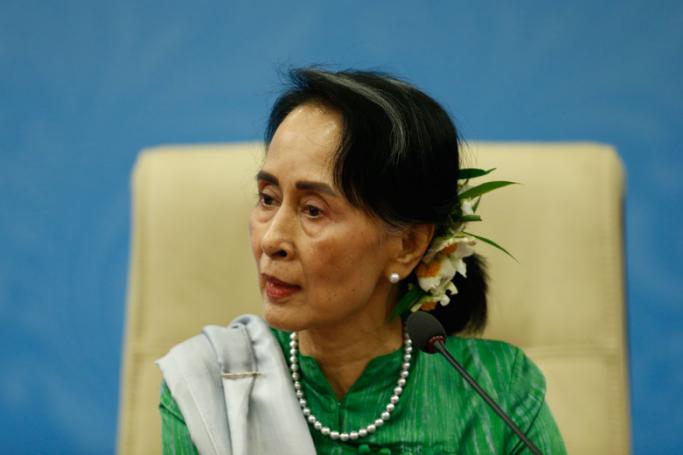Myanmar has rubbished a statement by the UN Security Council on the Rohingya refugee crisis, saying it could “seriously harm” talks with neighbour Bangladesh on the issue.
The Security Council had urged Myanmar, in a statement on Monday, to “ensure no further excessive use of military force” and had expressed “grave concern over reports of human rights violations and abuses in Rakhine state.
State Counsellor Aung San Suu Kyi's office said on Thursday, Issues facing Burma, and Bangladesh could only be resolved bilaterally, a point she says was ignored in the Security Council statement.
“Furthermore, the (Security Council) Presidential Statement could potentially and seriously harm the bilateral negotiations between the two countries which have been proceeding smoothly and expeditiously,” the State Counsellor's office said in a statement.
Negotiations with Bangladesh were ongoing, and the Bangladesh Foreign Minister Abul Hassan Mahmood Ali had stayed back in Nay Pyi Taw at the end of the Asia-Europe Foreign Ministers Meet.
Earlier addressing the Asia-Europe Foreign Minister's meet, Aung San Suu Kyi had expressed hopes that a Memorandum of Understanding (MOU) was likely to be signed at the end of Bangladesh-Myanmar foreign secretaries level talks on Thursday.
Bangladesh foreign minister Mahmood Ali also sounded optimistic, though some of his foreign office staff said a "few issues were yet to be ironed out."
They said Bangladesh was pushing for a 'definite time frame' for repatriation of the refugees, but Myanmar was not willing to commit itself to one.
The United Nations has denounced the violence during the past ten weeks as a classic example of ethnic cleansing to drive the Rohingya Muslims out of Buddhist majority Burma.
Rejecting that accusation, the military says its counter-insurgency clearance operation was provoked by Rohingya terrorists’ synchronised attacks on 30 security posts in the northern part of Rakhine State on 25 August.
Rohingya refugees say the military torched their villages, but the military says the arsonists were Rohingya terrorists. The refugees' have given harrowing accounts of rape and murder. The army rejects them as 'disinformation vested interests.'
You are viewing the old site.
Please update your bookmark to https://eng.mizzima.com.
Mizzima Weekly Magazine Issue...
14 December 2023
Spring Revolution Daily News f...
13 December 2023
New UK Burma sanctions welcome...
13 December 2023
Spring Revolution Daily News f...
12 December 2023
Spring Revolution Daily News f...
11 December 2023
Spring Revolution Daily News f...
08 December 2023
Spring Revolution Daily News f...
07 December 2023
Diaspora journalists increasin...
07 December 2023
PPP candidate interested in extracting resources from mountains east of Pyinmana












